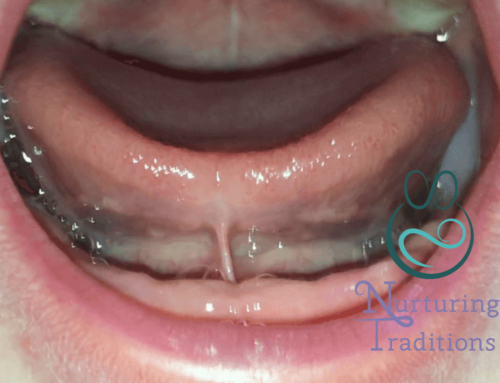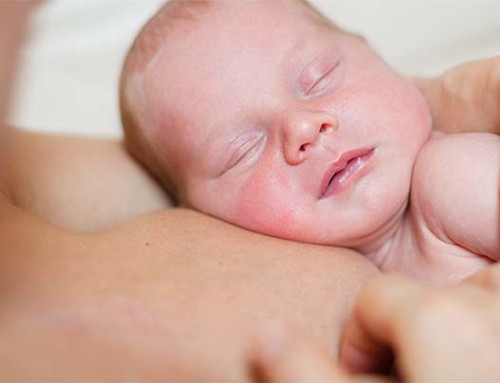Poop is something that becomes an everyday household word after having a baby. As an IBCLC, I’ve seen poop cause tears of joy and tears of frustration. Some of the first questions I ask parents are about poop, and I also answer weekly questions about poop. It isn’t unusual for parents to text me photos of poop or save diapers for me to see during consultations. Poop can provide a lot of information!
Over the years as I have worked with more families and further research has come out, my beliefs about infant poop have changed. For the majority of my career, I was taught it is normal for babies over the age of 6 weeks to not stool for up to 10 days. I learned there is little waste in breastmilk and little need for babies to stool daily. This information didn’t always make sense to me when applied to my own babies. When my children went long periods of time without stooling, they slept poorly, seemed uncomfortable, and sometimes had smelly gas. As they got older, I also noticed that infrequent pooping seemed to coincide with illness and colds. My instincts told me something wasn’t right. Yet everything I read said their irregular stooling patterns were normal, so I tried to reassure myself all was fine.

Years ago, I discovered some literature written by Jennifer Tow, IBCLC discussing healthy infant stooling patterns. Jennifer opened me to the idea that anything less than frequent, daily stooling in a breastfed baby is unhealthy. Since this time, when gathering information regarding stooling patterns of my infant clients, I have noticed that healthy, happy infants stool regularly and tend to have healthy parents with healthy guts themselves. I am fascinated by gut health and every day we are learning more and more about the gut and how it affects everything from the regulation of disease to mental health. The more I learn, the more I agree with breastfeeding professionals who teach that healthy babies should stool frequently.
Infrequent stooling is incredibly common in America, but it is not normal. There are numerous reasons for infrequent stooling. Some may include illness, food sensitivities, oral restrictions, structural issues, sensitivity to a soiled diaper, breastfeeding technique, oversupply, and low milk supply.
Often infrequent stooling is related to a compromised gut. Due to processed foods, the overuse of antibiotics, high levels of stress, our birth practices, low breastfeeding rates, etc., most Americans have compromised gut health. We now have lots of evidence that a parent’s gut flora is passed directly to their baby. Gut flora is passed through the birth process, through breastmilk, through skin, and during pregnancy. Our surrounding environment also plays a role in gut health.
Studies on stooling frequency of breastfed babies who live in countries eating a traditional/aboriginal diet show daily stooling patterns in babies and toddlers. Adults who don’t stool every day are uncomfortable, and whether they realize it or not, chronic constipation can be related to short and long term health issues. There isn’t a reason healthy stooling patterns should be different for American breastfed babies.
Symptoms like reflux, colic, rashes, mucus or blood in stool, repeated green stools, weight gain issues, fussiness at the breast, poor growth, or sleep issues often present in babies who have irregular stooling. Sometimes issues don’t present until a baby is older, such as food sensitivities and allergy, low immunity, or chronic constipation/diarrhea.
So the scoop on poop is that we still have very much to learn about gut health! Breastfeeding is by far the best thing you can do for your baby to establish a healthy gut. But if you notice some of the above signs in yourself and/or your baby, they may be worth further exploring. I have worked with dozens of parents who have been able to reduce or completely resolve their babies’ symptoms through improving gut health. Often parents working to heal their own baby, heal themselves in the process; resulting in more energy, stronger immunity, a better mood, and a healthier gut!





Hi Leah,
This is by far my favourite article you’ve written. I’ve shared it with many moms and will continue to! It opens up a great conversation about gut health not only of baby but of MOM! I even found this true for myself! Once I started to work on my own gut health, my once stool-every-10-days baby started stooling EVERY DAY! I was so amazed! I’m a believer!
Thank you so much for your comments Lynette! I’m glad you like the article! 🙂
My daughter was gluten free because it made significant difference in her anxietyand depression, but she started taking in carbs in pregnancy because she thought she needed a well rounded diet for the baby. Her daughter stooled every week to 10 days. She cut carbs after a few months and the baby immediately started stooling daily. Unbelievable.